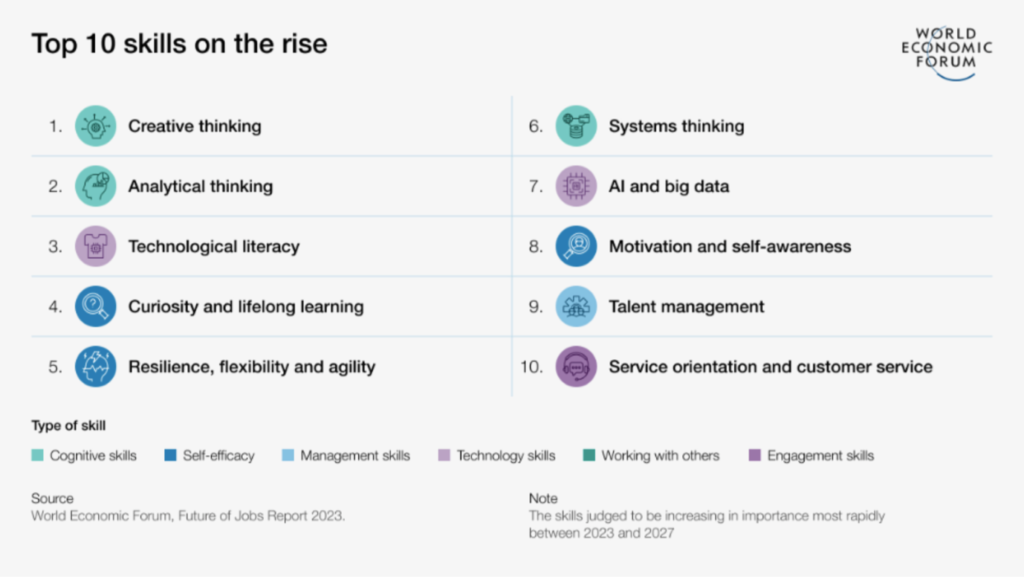BLOG 8
The latest “Future of Jobs” report published by the World Economic Forum forecasts that 83 million jobs are likely to be rendered redundant by (among other things) computers, robotics and artificial intelligence (AI) in the next 5 years. The projected emerging trends forecast the creation of about 69 million new jobs but that still leaves nearly 15 people unemployed unless they reskill themselves to add value to themselves and to the evolving economic reality.
While this trend – fewer jobs created to meet the needs of emerging fields – is not new, the advent of Chat GPT and other AI tools has rapidly accelerated the prospect of whittling down the scale of traditional employment by widening the chasm between current skills and future jobs.

The WEF Report suggests that the core skills above are completed by two attitudes relating to working with others – empathy and active listening on the one hand, and leadership and social influence on the other. Saadia Zahidi, Managing Director of the WEF opines: “For today’s students, analytical, and interpersonal skills, as well as the ability to understand and work with technology will be critical. Every student – regardless of their chosen fields – should aim to build these generalist skills to be ready for a rapidly changing future.”
As a result, the critical skills likely to be in greatest demand in the future will be related to communication, collaboration, negotiation and the expression of creative thinking, all of which are essentially finely honed language skills. ALSOWISE lays particular emphasis on enhancing English proficiency, the global language of business, along with reading skills and analytical ability. These are the essential building blocks for a more effective and confident communicator which, along with empathy and interpersonal skills, will propel the successful professional of the future.




